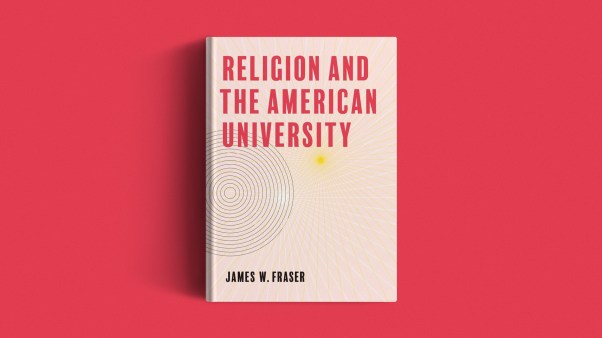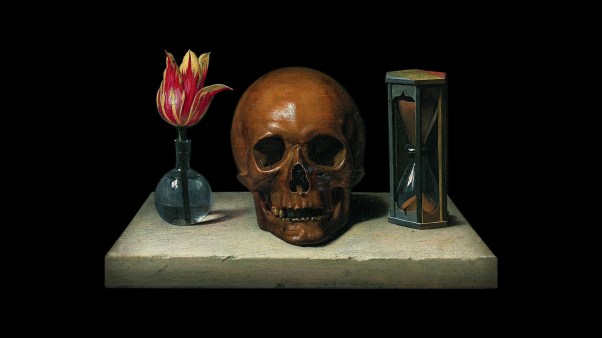Illinois Senator Barack Obama, the front-runner for the Democratic nomination for President, was in Philadelphia today for a major speech on race.
 Bethlehem’s Church of the Nativity has restored its sparkling mosaics and marble columns to their original glory for the first time in 600 years.
Bethlehem’s Church of the Nativity has restored its sparkling mosaics and marble columns to their original glory for the first time in 600 years.
“It has become such a beautiful church,” Ziad al-Bandak, head of the local project committee of Christian leaders, told the AP. “Every Christian in the world would love to see it now.”
Palestinian Mayor Anton Salman expects 1.2 million tourists will make their way to Christ’s birthplace this year. Among them, following an Israeli reversal, will be those who most long to visit for Christmas—the Christians of the Gaza Strip.
“In Gaza, they talk about the West Bank as if it is heaven,” said Hanna Maher, Egyptian pastor of the Gaza Baptist Church. “People love to go for Christmas; there are so many churches.”
In Gaza, there are three. According to the 2017 census, 47,000 Christians live in the Palestinian territories (1% of the population), but only about 1,000 live in Gaza.
Last week the Christian advocacy group Middle East Concern (MEC) reported that nearly all who applied to enter Israel to visit the West Bank for Christmas failed to receive permits, except for those older than 55.
Applicants younger than 16 were also approved, consistent with restrictions instituted last Christmas and maintained through Easter. A previous policy limited travel to those between ages 16 and 35.
The MEC report was confirmed by Maher, who stated that initially just 200 travel permits had been granted, and Christians, sharing stories of the delayed permit applications, began to assume those outside the age limit would not be allowed to travel.
But their prayers were answered this week when hundreds more approvals were granted, The new batch brings the total for Gaza’s Christians up to 650, reported TV7, with an additional 100 applicants in process. Maher confirmed this latest list included many youth. Another round of approvals is expected to release on Christmas Eve.
“The ones who get permission are happy,” he said. “The others not.”
In previous years, when Christians were able to travel to the West Bank without restrictions, the churches in Gaza would be empty for Christmas, said Hanna Massad, founder of Christian Mission to Gaza. He served as pastor of the Gaza Baptist Church from 1987–91 and 1999–2008 and returns regularly.
This year, among Gaza’s sole evangelical congregation of 60 people, one young man’s travel application went unanswered, while his parents received permission.
Massad believes the age range is designed to prevent family travel. Those denied are simply told, “security reasons.”
Maher’s own three young children were approved but not his Palestinian wife. As an Egyptian, he does not qualify within the holiday policy.
Still, some families were granted permission to travel together, and he has little explanation. “Maybe they do it to make it look like there are many permits, even if many will not go,” Maher said. “Families cannot travel if separated.”
But there were exceptions to the unstated over-55 rule. The first batch included a young woman set to marry in the West Bank over Christmas and remain there after the wedding, while her parents will return home.
“They felt it was a miracle,” Maher said. “Most families have relatives in the West Bank but cannot visit them.”
For Israel, returning is the issue. “Foreigners have no inherent right to enter Israel, including Palestinian residents of Gaza,” stated a document issued by the Israeli Coordinator of Government Activities in the Territories, in reference to similar restrictions last Easter.
The decision was made, it said, cited by Israeli newspaper Haaretz, “in light of the recurring phenomenon of Palestinians who took advantage of the permit to remain in Israel illegally” and “to limit illegal presence in Israel.”
A few dozen remained in the West Bank the previous Christmas, their sources said.
Israel calls the West Bank by the biblical names “Judea and Samaria,” though it has not formally annexed the territory considered occupied by the international community.
Poor living conditions due to the Israeli blockade, coupled with the increasing Islamization of culture under Hamas, pushed some Gazan Christians with holiday permits to stay in the West Bank, according to Massad, who recently wrote Pastor from Gaza about his experience.
“Christians feel under more and more pressure,” he said. “But the West Bank is Palestinian territory. They are not moving to Tel Aviv.”
But if they can find a way, they are headed out. There were 3,000 Christians in Gaza prior to the blockade, instituted 11 years ago.
Maher, who became pastor in 2012, said a West Bank woman married a man from Gaza in his church and circumvented the system by going out through Egypt, traveling to Jordan, and crossing the river back to the West Bank. After seven years of not being able to leave Gaza, now the family stays put in the West Bank, afraid even to leave the village. (If her husband tries to cross a checkpoint his ID will link him to Gaza, and he will be sent back home.)
“From one prison to another,” Maher quoted him, “though one prison is much better than the other.”
CT reported on life in Gaza in May, as demonstrations drew tens of thousands to the border. With 2 million people living in a strip of land the size of Philadelphia, Gaza’s unemployment rate is 44 percent, and the poverty rate at 39 percent, both double that of the West Bank. Eighty percent live on some sort of social assistance, according to the World Bank.
So while million has been poured into the Church of the Nativity restorations—deemed a World Heritage Site in 2013—Gaza’s Christians at least will not miss the ceremonies.
Bethlehem will host a delegation from 14 twin cities around the world for the Christmas tree lighting celebration. Foreign musicians will perform, and visiting hours will be extended to accommodate the long lines.
Mayor Salman said he hopes the increased tourism will encourage the dwindling Palestinian Christian population not to emigrate.
But in Gaza, the few left have little choice. “In the West Bank you can feel the Christmas spirit on the streets,” Maher said, “in Gaza, we only feel it in our homes.”
Here’s a link to the original speech transcript as given to the news media prior to the speech. Be sure to read (or better yet listen to) this speech. I think it’s a rhetorical high water mark for the Democratic primary season that I am convinced will resolve itself well before the Democratic National Convention this summer.
Why a speech on race now?
Less than a week ago, video clips of Rev. Jeremiah Wright’s fiery sermons (including lines such as, “G-Damn America”) began to show up on You Tube and other places on the net. Wright, the recently retired pastor of Chicago’s Trinity UCC, a megachurch, Afrocentric congregation, has been a spiritual father to Obama in more ways than one. (Here’s one link to one of the many You Tube video clips.)
After the clips surfaced, conservative media, such as Fox News, pushed this story into the national conversation, creating a domino effect of media attention. In recent days, Obama has given major interviews to Chicago news media, explaining why he rejects Wright’s comments, but stops short of condemning Wright himself.
This is a tricky line to draw. In Philadelphia, Obama commented about Rev. Wright, saying:
But race is an issue that I believe this nation cannot afford to ignore right now. We would be making the same mistake that Reverend Wright made in his offending sermons about America, to simplify and stereotype and amplify the negative to the point that it distorts reality.
A high-five to Sen. Obama for addressing the racial divisions in America at a time when politicians use slippery language to get off the hook on race. The part of the Obama speech that is less likely to gain careful examination comes in this phrase:
….opportunity comes to be seen as a zero sum game, in which your dreams come at my expense.
So, take a short detour with me into Game Theory, in particular zero-sum and non-zero-sum situations. That’s what Obama is getting at. When winners and losers in any society are determined by the color of their skin or ethnicity, then a fundamentally unjust, zero-sum situation results.
Defining this problem is just one element of game theory here. The other, harder thing to understand is the non-zero-sum situation, otherwise known as a “win-win” outcome. (In competitive sports, we are looking for one winner and one loser at the end of the game. Chess is the classic, zero-sum game.)
But in America, we believe everyone should have “a piece of the American dream”– a good job, owning a home, public safety, good education, and a secure retirement. So the vision that Obama is casting here is really not about “pie in the sky in the sweet bye and bye,” but “pie now,” a bigger pie, and fair play in which each person gets a fair shot at achieving the American dream.
And, when politicians emotively talk about non-zero-sum, win-win situations, they deliver lines that invariably draw on biblical themes.
In Obama’s speech, he does this by saying:
“In the end, then, what is called for is nothing more, and nothing less, than what all the world’s great religions demand–that we do unto others as we would have them do unto us. Let us be our brother’s keeper, Scripture tells us. Let us be our sister’s keeper. Let us find that common stake we all have in one another, and let our politics reflect that spirit as well.”
Isn’t the non-zero-sum culture (as addressed in the Psalm 133, Amos 5:24, or Acts 2:42+) one of the most persistent ideas in the entire narrative of Scripture?








